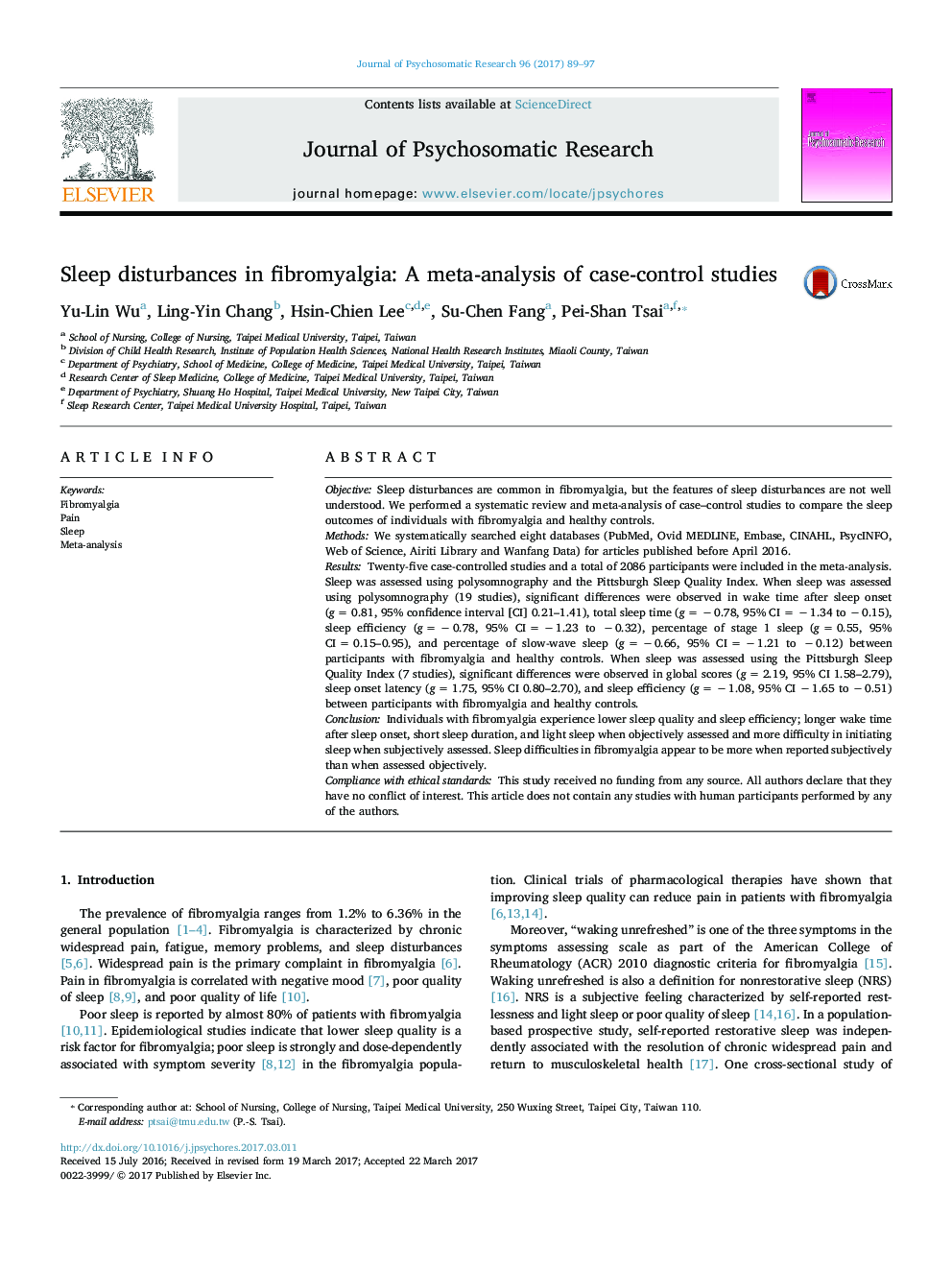| کد مقاله | کد نشریه | سال انتشار | مقاله انگلیسی | نسخه تمام متن |
|---|---|---|---|---|
| 5045907 | 1475899 | 2017 | 9 صفحه PDF | دانلود رایگان |
- Both objective and subjective measurements identify sleep difficulties in fibromyalgia.
- Sleep difficulties in fibromyalgia appear to be more when reported subjectively than when assessed objectively.
ObjectiveSleep disturbances are common in fibromyalgia, but the features of sleep disturbances are not well understood. We performed a systematic review and meta-analysis of case-control studies to compare the sleep outcomes of individuals with fibromyalgia and healthy controls.MethodsWe systematically searched eight databases (PubMed, Ovid MEDLINE, Embase, CINAHL, PsycINFO, Web of Science, Airiti Library and Wanfang Data) for articles published before April 2016.ResultsTwenty-five case-controlled studies and a total of 2086 participants were included in the meta-analysis. Sleep was assessed using polysomnography and the Pittsburgh Sleep Quality Index. When sleep was assessed using polysomnography (19 studies), significant differences were observed in wake time after sleep onset (g = 0.81, 95% confidence interval [CI] 0.21-1.41), total sleep time (g = â 0.78, 95% CI = â 1.34 to â 0.15), sleep efficiency (g = â 0.78, 95% CI = â 1.23 to â 0.32), percentage of stage 1 sleep (g = 0.55, 95% CI = 0.15-0.95), and percentage of slow-wave sleep (g = â 0.66, 95% CI = â 1.21 to â 0.12) between participants with fibromyalgia and healthy controls. When sleep was assessed using the Pittsburgh Sleep Quality Index (7 studies), significant differences were observed in global scores (g = 2.19, 95% CI 1.58-2.79), sleep onset latency (g = 1.75, 95% CI 0.80-2.70), and sleep efficiency (g = â 1.08, 95% CI â 1.65 to â 0.51) between participants with fibromyalgia and healthy controls.ConclusionIndividuals with fibromyalgia experience lower sleep quality and sleep efficiency; longer wake time after sleep onset, short sleep duration, and light sleep when objectively assessed and more difficulty in initiating sleep when subjectively assessed. Sleep difficulties in fibromyalgia appear to be more when reported subjectively than when assessed objectively.Compliance with ethical standardsThis study received no funding from any source. All authors declare that they have no conflict of interest. This article does not contain any studies with human participants performed by any of the authors.
Journal: Journal of Psychosomatic Research - Volume 96, May 2017, Pages 89-97
